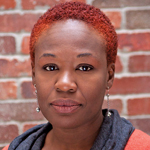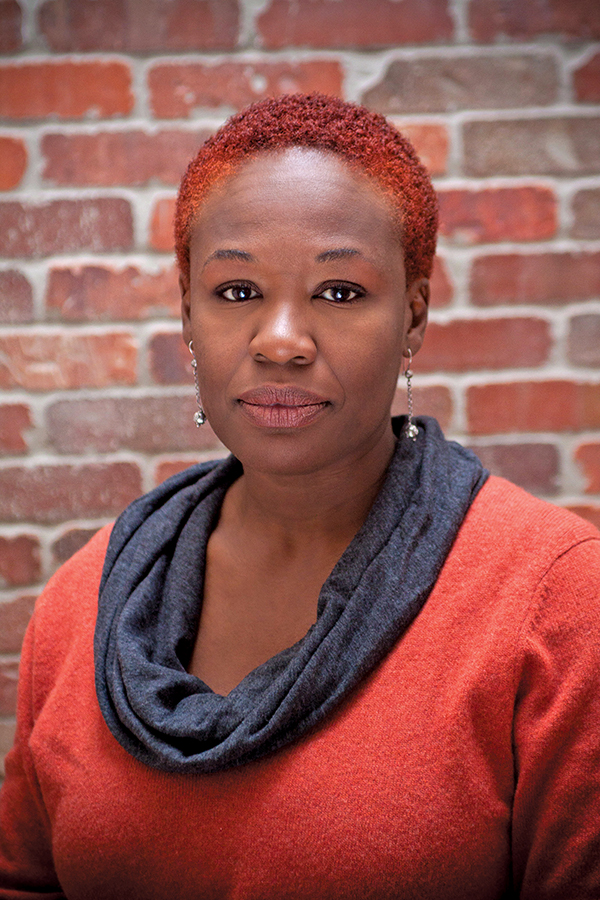GINA ATHENA ULYSSE: BRINGING AN ANTHROPOLOGIST’S INSIGHTS INTO PUBLIC DISCOURSE


“I didn’t start out intending to write a book,” says Professor of Anthropology Gina Athena Ulysse. “I think of this project as a response. There was a call from my birth country at 4:53 p.m., on January 12, 2010; I had to respond.”
Her response to Haiti’s devastating earthquake became the book, Why Haiti Needs New Narratives: A Post-Quake Chronicle (Wesleyan University Press, 2015), a chronological presentation of 30 essays in English, French, and Creole. Many were published previously in such public forums as National Public Radio blogs, Ms. Magazine, Huffington Post, and Tikkun Daily. Among those who praise the collection, executive editor of Ms. Magazine Katherine Spillar calls Ulysse’s work “…crucial to our understanding and empathy for the republic and its people.”
“I’d become an anthropologist because of Haiti,” notes Ulysse of the country where she spent her childhood. “What carried me through the aftermath of the quake was knowing that my training and everything I’d done thus far had prepared me for this moment. I was compelled to write.”
Additionally, she notes that her teaching had informed this project. “When it came time to write the acknowledgments, I wanted to include literally every single student who had taken my course, Haiti: Myths and Realities,” she says. “Teaching that course was very dialogic: students were constantly interrogating what they were exposed to, because there is such a socially limited view of Haiti. I was continuously adapting, reformulating the course, wondering, How else can I expand their knowledge?”
This need for more material led Ulysse into journalism to complement the anthropology works. The short op-ed format essays that Ulysse uses so powerfully in the book is a product of her interest in the tension between the two fields.
The speed at which a journalist can bring her work into the public eye has long appealed to Ulysse. She recalls facing this dilemma as a doctoral student: “During fieldwork in Jamaica, many people were telling me urgent stories because they wanted the information out tomorrow, not published six years down the road when the dissertation becomes a book.”
Also appealing is a journalist’s sharp focus. Ulysse explored this in seminars led by The OpEd Project and Ms. Magazine Workshop, which sought to train and bring diverse voices into the public forum: “What I like about the short-form essay are the time and space restrictions. I get to engage with an issue I am passionate about, commenting on a couple of intriguing points. Hopefully, these will both inform and entice the reader to further inquiry. If I inspire more interest, I’ve done a lot.”
As for the new narratives she calls for in the book’s title: “They are not necessarily brand new narratives; it’s an expansion of those narrow stereotypes that we constantly go to by default,” she says.
For instance: “In 2011, I sent to PBS an article I’d titled ‘Haiti’s Fight for Humanity in the Media.’ They published it as, ‘The Story about Haiti You Won’t Read,’ with a picture of a beach to illustrate it. This completely erased my point that Haiti is represented in dehumanizing ways in the media. Rather than the usual pictures of squalor, the only other choice was a picture of a beach? There’s so much more to Haiti than those extremes; we can explore other narratives.”
This interest in journalism has deepened her commitment to more public anthropology. “Academic experts in the media often tend to be political scientists, sociologists, and historians,” she notes. “Yet, anthropologists have the most to offer in terms of understanding and unpacking cultural complexities. But we need to be more adept at doing that in short form.”
And to further broaden access to ideas, Ulysse insisted that her book would include each essay in three languages. “For me that was a nonnegotiable. I wanted to make my first book on Haiti accessible to as many people as possible. We were fortunate to get Evelyne Trouillot and Nadeve Menard as translators. It was very important to me that these translations be done by women living in Haiti—and part of it has to do with what it means to have Haitian women speak for themselves, even in translation.”

